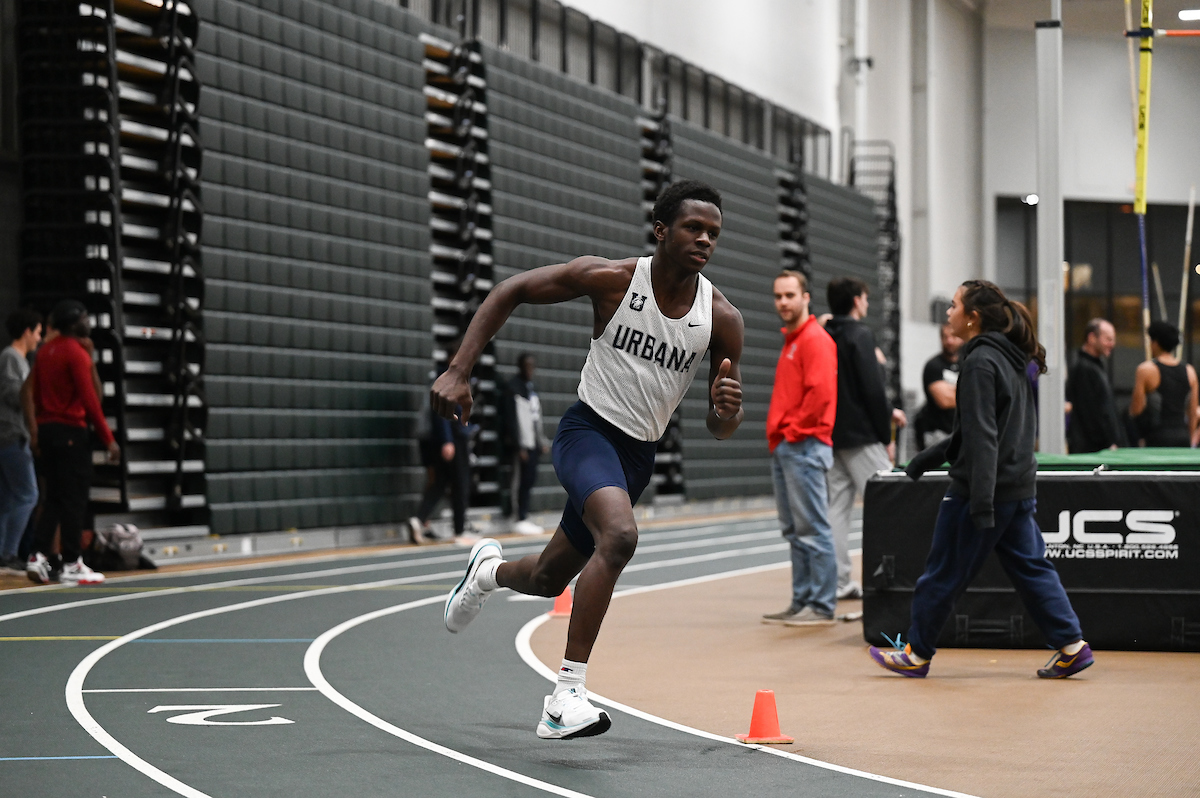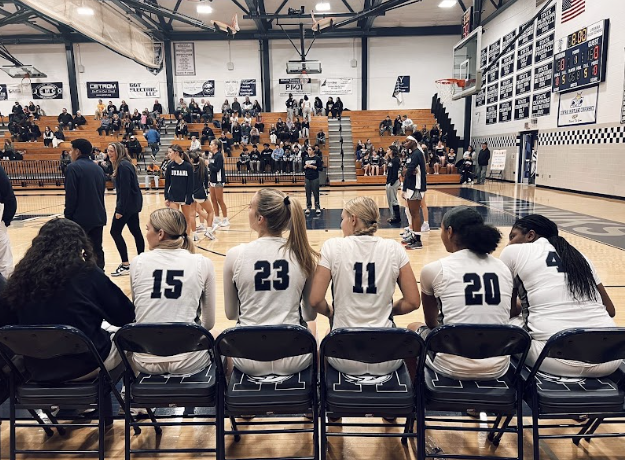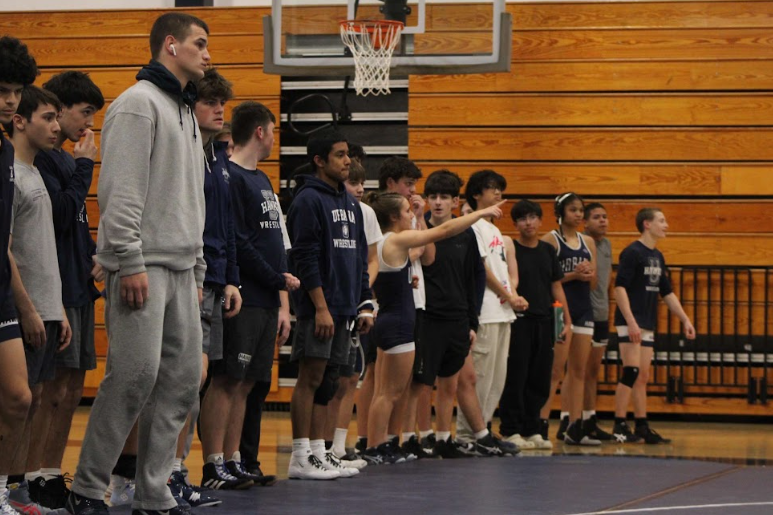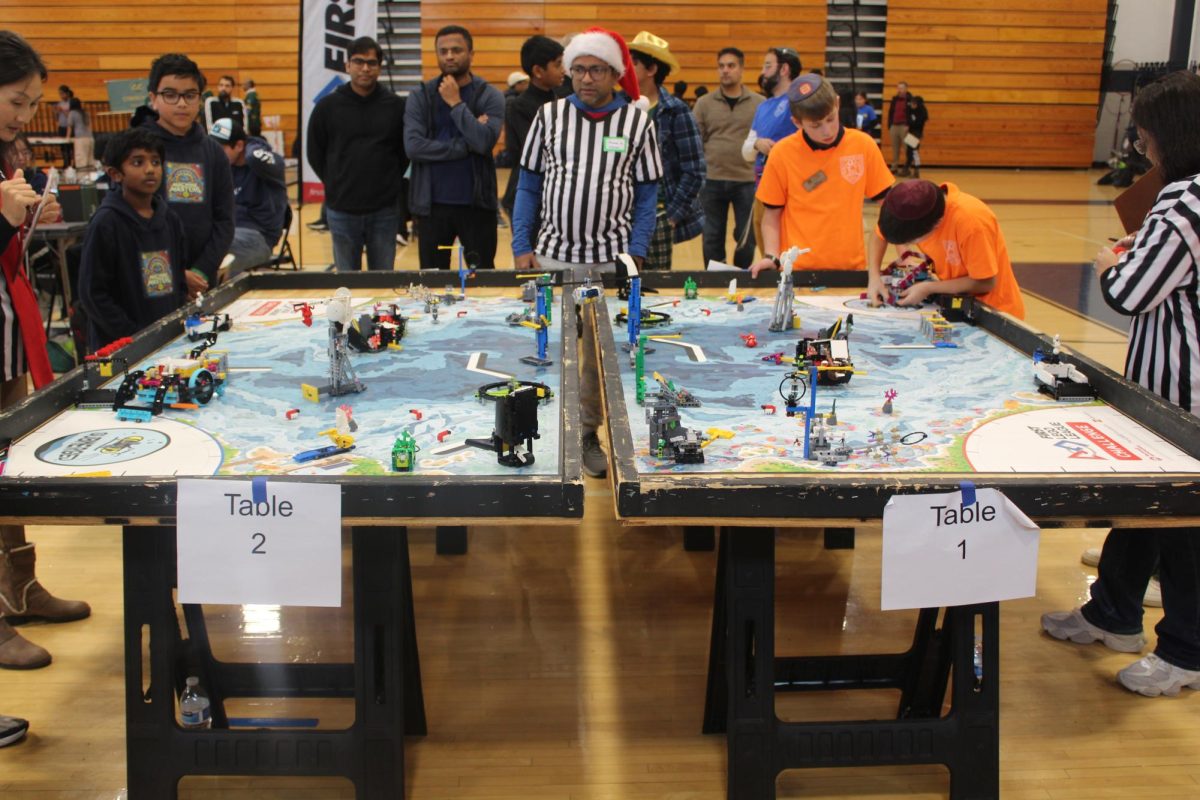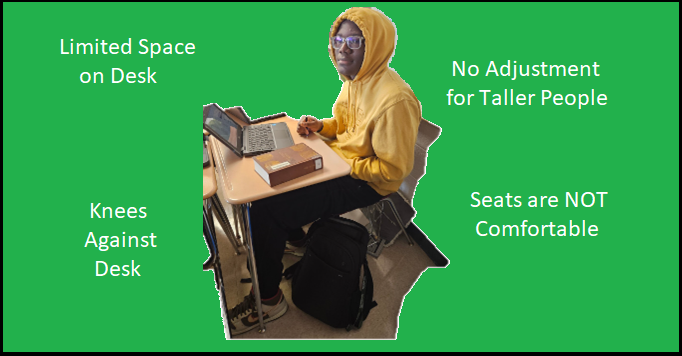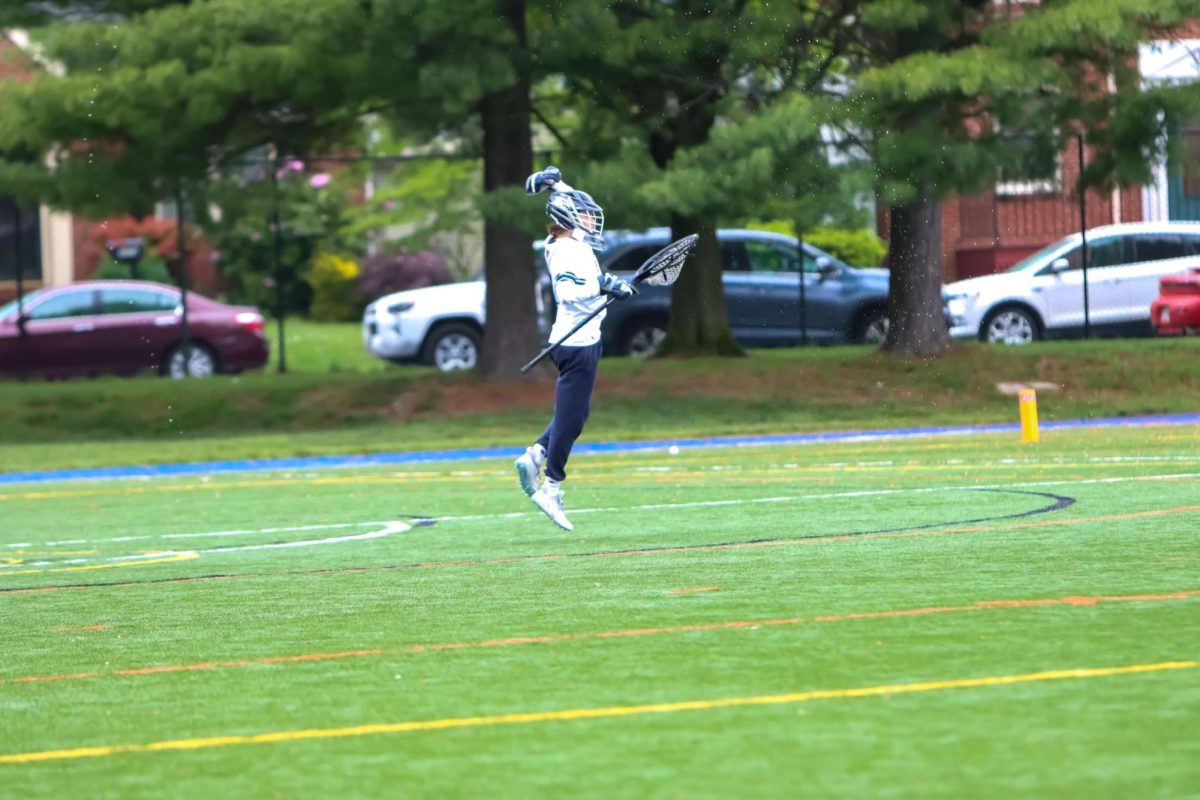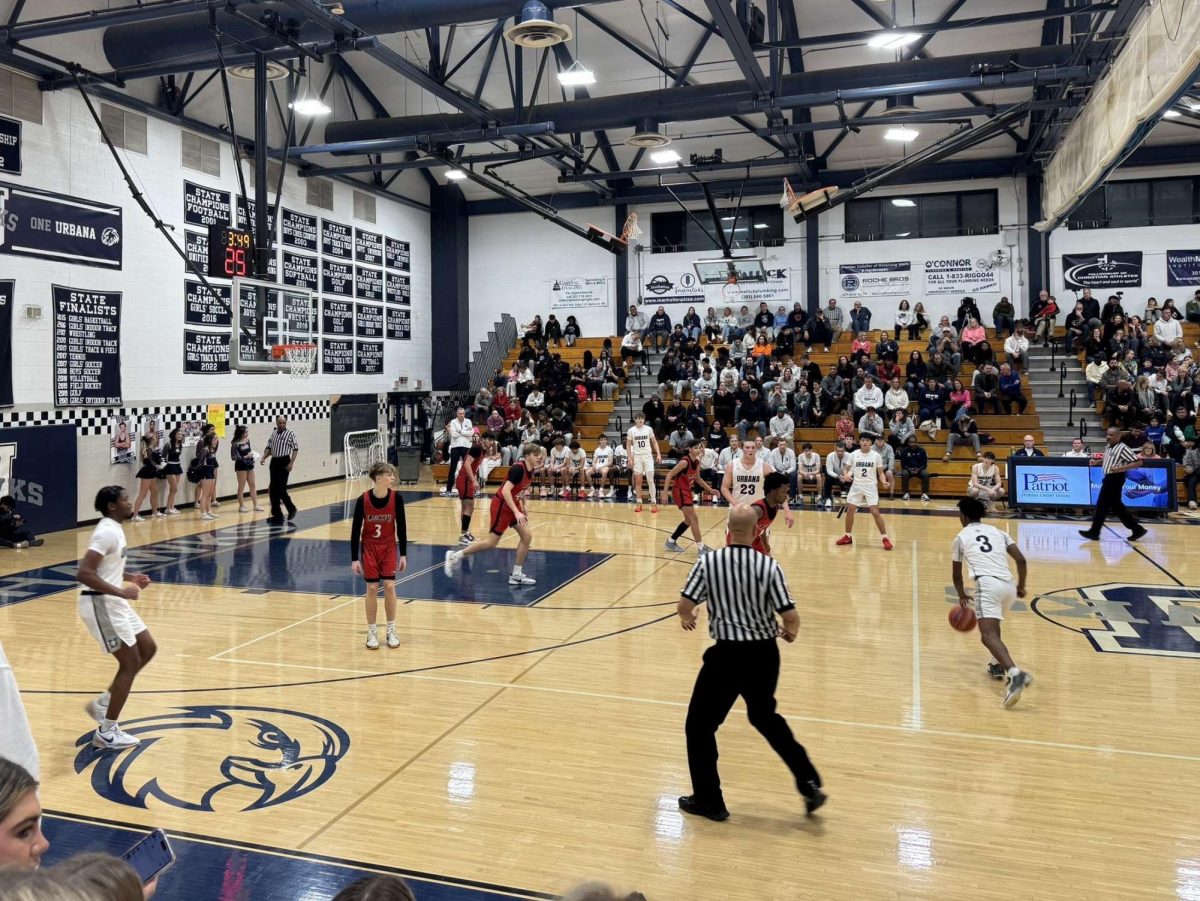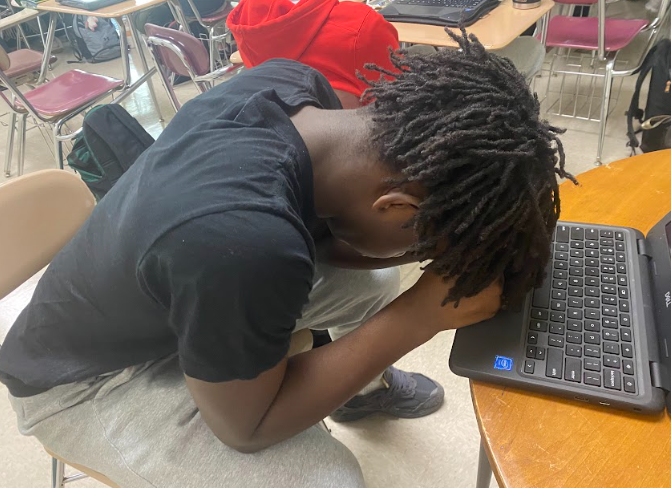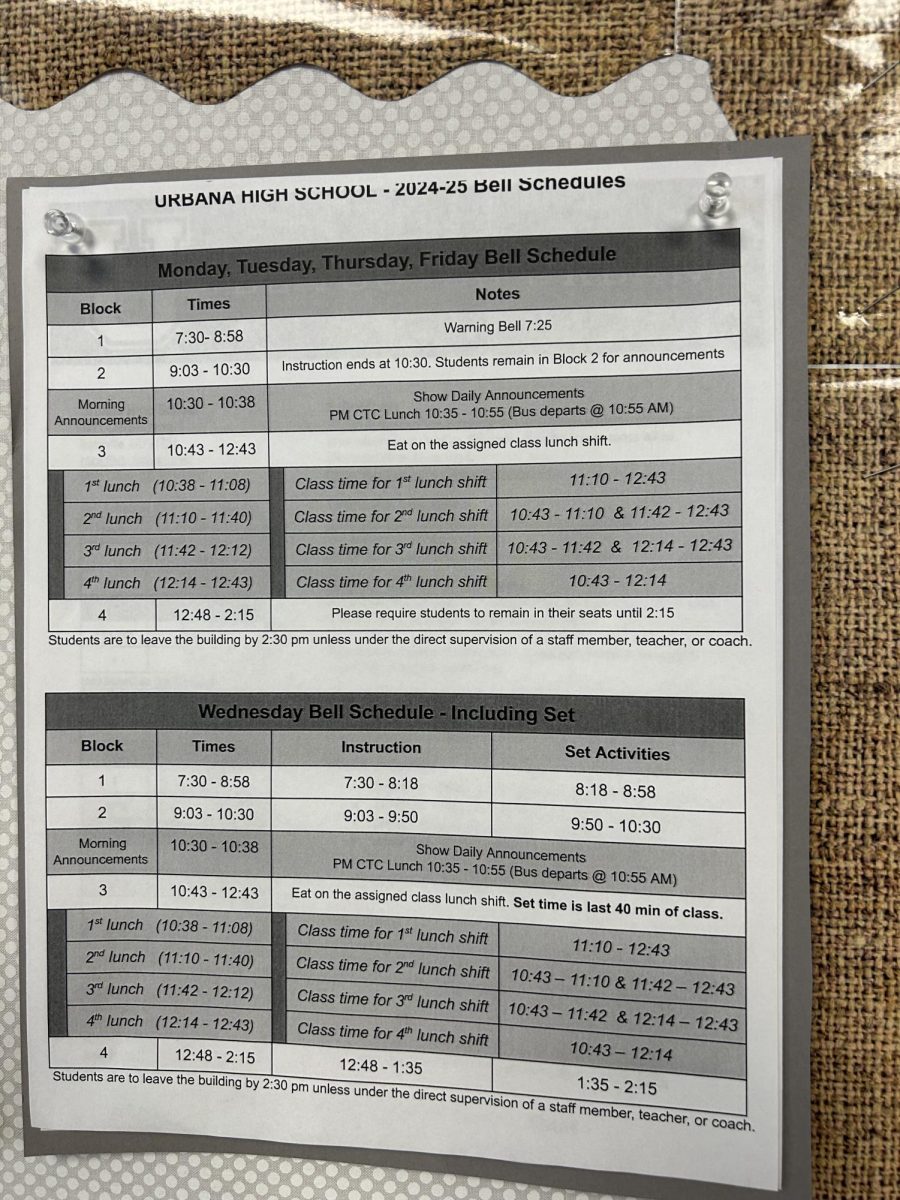Sports Concussion Risk
October 13, 2014
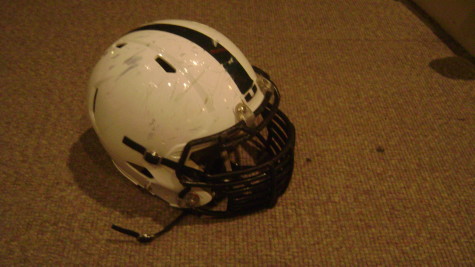
An Urbana High School football helmet.
A concussion is a traumatic brain injury (TBI). It is often caused by a bump, or jolt to the head that can change how the brain normally works. Concussions can also occur from a fall or a blow to the body that causes the brain and head to shake quickly back and forth. Concussions are not life threatening, but the effects are serious.
Effects of a concussion are bleeding to the brain under the skull. There is also a brief moment of unconsciousness or dizziness. There may also be a ringing in the ears which causes late verbal reactions. Confusion, vomiting, headache and amnesia are effects that can last for decades. Depression and disturbed sleep can also occur.
There can also be difficulty with memory loss and severe changes in appetite. A concussion slows the ability to think clearly in the average teenage brain by 53%. The brain does not fully develop until the age of 25.
Concussions do not just happen on the football field. Girls’ soccer player, Abbey Burdette said, “I have never had one, but I have seen a girl on my soccer team have one”.
Football is a sport that is inherently violent and it involves slamming bodies and painful injuries. It is not unusual for football fans to have seen a broken arm, broken leg, or a concussion.
A concussion is a complex process that affects the brain. They have become more common today as football has become inherently more violent. Over the past few years there has been a large focus on concussions in high school sports and how we could prevent and treat them.
“There is definitely a heightened awareness. I don’t know what we can do to prevent head injuries,” said UHS football coach Dave Mencarini. Mencarini does not believe that our team has been affected by any concussions. “Not yet. It’s almost inevitable in the sport of football [however],” he said.
Severe concussions happen in soccer when the players head the ball. “She was kind of out of it” Burdette said, after her fellow teammate was hit. Improper technique is one of the major causes of injuries in heading the ball. Another factor that might help injuries from happening is improved equipment.
Young students take longer to recover from a concussion, which means rest is needed. Get plenty of sleep at night, and rest in the day. Avoid activities such as sports or roller-coaster. Your ability to do sports is lessened due to lack of reaction, which is why rest is important.
In the event of a suspected concussion, the Center for Disease Control recommends consulting your doctor, or health professionals. It is pretty clear that a concussion can have a devastating long term effect.
“We’re just starting to scratch the surface. We’re starting to study kids as young as five and follow them throughout their lives, but that takes years to do; 90% of what we know about concussions, we have learned in the last five years,” said Mark Lovell PhD and founding director of the university of Pittsburgh medical center in a recent WEB MD article.
Mencarini also has advice to any players that are worried about receiving a concussion. “In the sport of football it’s hard not to tell somebody not to worry. We would talk about proper blocking and tackling”.

